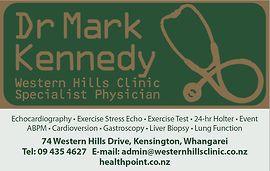Northland > Private Hospitals & Specialists >
Dr Mark Kennedy - Private Internal Medicine Specialist
Private Service, Internal Medicine, Cardiology, Gastroenterology & Hepatology (Liver), Respiratory
Asthma
Patient information:
Symptoms of asthma include cough, wheezing, a tight chest and trouble breathing.
Asthma occurs when the main breathing tubes of your lungs are over-sensitive and react to things that don’t affect other people. As a result of this they become swollen, spasm, narrow and plug with mucus.
If your asthma is not getting better with standard treatment (preventer and reliever inhalers) or if you are having more asthma attacks than you or your doctor are comfortable with, you may be referred to a specialist.
In most cases you’ll be asked to give a complete medical history and will also be examined by the doctor. Sometimes other conditions can appear like asthma or complicate asthma, so you may be asked to have some tests to help in the diagnosis.
Tests looking for severity and complicating features of asthma include: chest x-ray, spirometry, detailed lung function and CT chest scan.
Treatment
This includes the avoidance and management of triggers, taking medicines as well as changing some lifestyle factors.
A peak flow meter can be used to keep a watch on your asthma and help with plans to prevent attacks. Stopping smoking is very important as is learning to recognise and avoid any trigger that precipitates your asthma attack.
Asthma is treated with inhaled medicines. There are two types:
1. a preventer medicine is taken every day. It soothes the irritated breathing tubes and prevents worsening of asthma, “asthma attacks”.
2. a reliever treats the asthma attacks. It relaxes the tightened muscles around the breathing tubes.
The aim is to find the least treatment that keeps your asthma well controlled.

